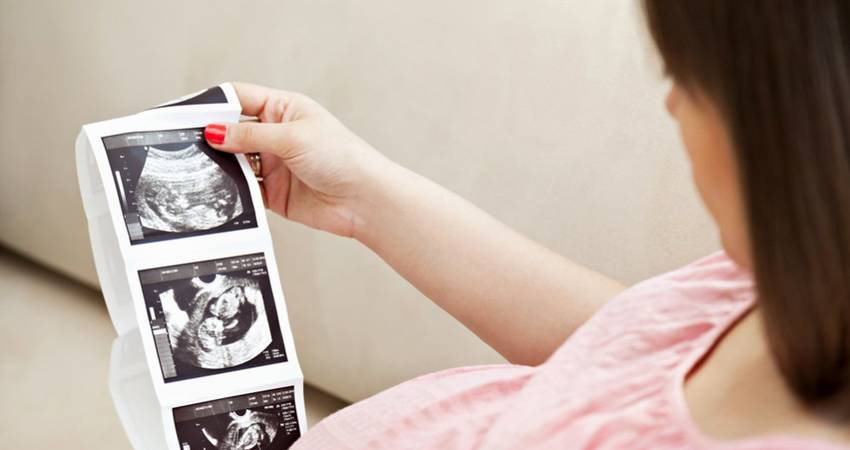
Abortion Is Not A Better Answer to Failures of the Past
In explaining his Damascene conversion on the road to the almost certain referendum on the 8th Amendment to the Constitution Simon Harris attempts his best Enda Kenny impression of creating an epoch-defining moment where modern Ireland repudiates its unwanted past.
Minister Harris attempts to frame the debate as one where those in favour of a repeal seek an enlightened, caring compassionate future, while suggesting those against abortion are the modern-day oppressors of women, and he managed to reference memories of the Magdalene Laundries, the Mother and Baby Homes, the case of the Kerry Babies and Ann Lovett, all in a few short sentences.
Of course this is an attempt to frame the debate as repeal being good and the 8th being bad. What Mr Harris insinuates is that if you want to retain the 8th, you are complicit in the dark history of Ireland, you endorse it and want to return to those times. He attempts a false equivalence of a pro-life position and the treatment of women and children in the past.
In one respect, the Health Minister is correct in claiming ‘Every now and then an issue comes before us which challenges us to think about what kind of a country we want to be and what kind of a society we are.’
But Mr Harris has his analysis on its head. The pro-life position is not the modern-day successor of Ireland’s dark past where women were consigned to a dark place – but abortion is.
The question of the 8th offers a chance at redemption. But not the redemption that Minister Harris offers. Ireland has changed since those times. There are no more Laundries or Homes. We have an economy and a State, a tax-base, that have allowed us to move on and to offer a better more humane response to crisis pregnancies.
Harris said: ‘The death of Ann and her baby son in these stark and lonely circumstances is a memory that chills us still and one we should not forget.’
Our history should not be forgotten. Nor should we forget the progress that society and Ireland has made for mothers and children.
Certainly there is more to be done but as a society and a State the supports for mothers and children right now are a world away from the past. This has been achieved without recourse to abortion. Our maternal health care is as good as anywhere else in the world – for both mother and child. Yes, there are deficiencies but abortion will not fix the problems.
The Magdalene Laundries, the Mother and Baby Homes, the Kerry Babies, and the tragedy of Ann Lovett, involved mothers and children. The case of the Kerry babies involved the death of two children, one tragically and the other very, very violently.
In many of these cases children also suffered, being separated from their natural mother and often adopted abroad. The Mother and Baby homes were a place for mother AND baby.
For many women of the time, these were crisis pregnancies. The Laundries and Homes were the solutions offered. But not by society or the State. Society – the State, the politicians, towns and villages, ‘respectable’ institutions – offered nothing.
The Laundries and Mother and Baby homes were something when nothing else was offered. In modern Ireland, the solution to crisis pregnancies, according to Simon Harris, is abortion. What kind of society are we? Are we a society that condemns the unwanted child to the rubbish bins, not just of history, but of our healthcare system?
He says: ‘Is it acceptable to any of us that women are once again left in a lonely and scary place sending off for a pill to be sent through the post instead of being able to access the medical advice and support they need?’
Of course not. But Minister Harris is not offering medical advice and support. He is offering a pill. He is offering abortion. He is offering the solution that is easiest for society and his ministry. He is offering new high walls behind which the public can ignore the reality of abortion.
His virtue-signalling makes the reality: ‘Let this be a moment people will look back on as one where their representatives confronted one of the most complex issues we have faced as country with clarity, with compassion and with care.’
But abortion provides neither care nor compassion.
The inconvenient truth is that abortion is the modern day successor to the Laundries and the Homes.
But it is worse. Those were a poor solution where nothing else was on offer. Abortion is a final solution in an Ireland that has the resources, the systems and the ability to offer much more.
Dualta Roughneen is a writer and a researcher
Featured
- Yes, that hideous celebration of 300 abortions is real
- White Crosses Memorial: Dungarvan once again pays its respects to our aborted babies
- Precious Life welcomes strong stand by Scottish Bishops against 'draconian' Buffer Zones law
- The fury over sex-selective abortion in Britain
- IFPA’s claim ignores HSE statistics on benefit of 3-day wait
- 12 Wonders of Christmas a huge Success
- Campaign to stop EU funding out of state abortions - tell your EU commissioner to vote NO
- Judge recuses himself from case of woman praying in censorship zones for “apparent bias”
- I’m a Celebrity star criticises “sad” UK law that aborts babies with Down Syndrome up to birth
- British actress speaks out on “serious risk” assisted suicide bill has for those with eating disorders
- Caplan’s “Tragic Hysteria of Abortion” discusses the flaws with mainstream Turnaway Study interpretations
- Mother and baby doing well after surgery for mother’s cancer during pregnancy
- Josiah: Abortion Survivor
- Loving the Unborn
- Rally for Life 2025
- Don't assist Suicide 2024


























